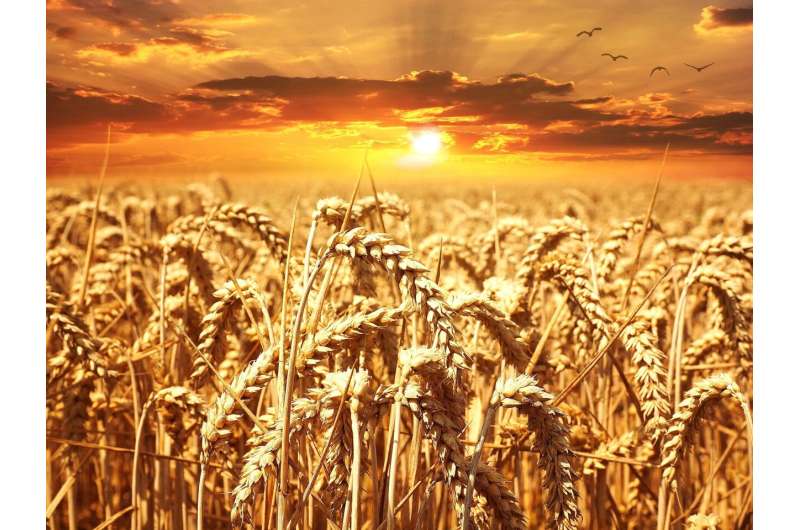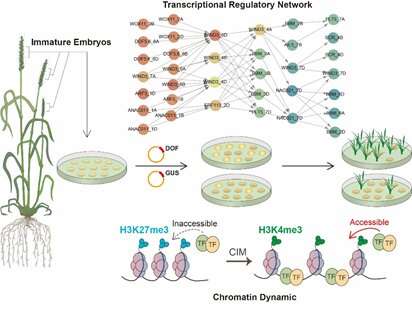This article has been reviewed according to Science X's editorial process and policies. Editors have highlighted the following attributes while ensuring the content's credibility:
fact-checked
peer-reviewed publication
trusted source
proofread
Improving wheat regeneration with novel DOF family transcription factors

Genetic transformation is a crucial aspect for gene functional research and crop improvement, but its effectiveness in wheat is currently limited. Regeneration capacity is vital for the genetic transformation efficiency.
Using Fielder, a wheat variety known for its high genetic transformation efficiency, researchers led by Prof. Xiao Jun from the Institute of Genetics and Developmental Biology of the Chinese Academy of Sciences (CAS) and Prof. Zhang Xiansheng from Shandong Agricultural University investigated the transcriptional regulation and chromatin landscape dynamics during the wheat regeneration process.
This study, which led to the discovery of the novel transcription factors DOF3.4 and DOF5.6, was found to improve both the efficiency of regeneration and genetic transformation even in JM22, a commonly grown winter wheat variety in China with notoriously low transformation rates. Results were published in Nature Plants on May 4.
In this study, the researchers found a robust correlation between sequential gene expression and altered chromatin accessibility during wheat regeneration. To better understand this relationship, comprehensive transcriptional regulatory networks were constructed using RNA-seq and ATAC-seq data, resulting in the discovery of 446 key transcription factors.

During the early callus induction phase of wheat regeneration, two DNA binding with one finger (DOF) genes were selectively activated, in comparison with the Arabidopsis regeneration process, during which the Lateral organ Boundary Domain (LBD) family genes are induced. Furthermore, the researchers reported the beneficial effects of these genes on the process of wheat regeneration.
This study not only fills the knowledge gap in wheat regeneration, but also provides extensive data to aid in understanding this vital process. In addition, the identification of two DOF transcription factors through comparative analysis provides an opportunity to improve the efficiency of wheat genetic transformation, which would benefit numerous widely cultivated wheat varieties.
More information: Xuemei Liu et al, Uncovering the transcriptional regulatory network involved in boosting wheat regeneration and transformation, Nature Plants (2023). DOI: 10.1038/s41477-023-01406-z
Journal information: Nature Plants
Provided by Chinese Academy of Sciences





















